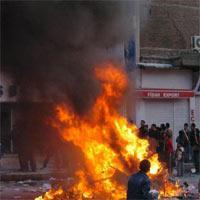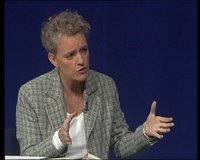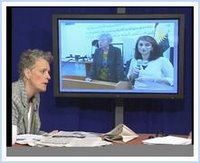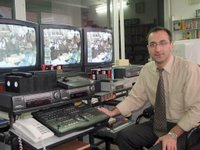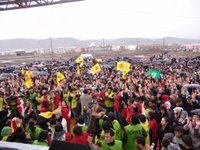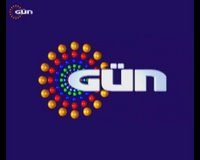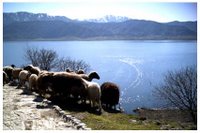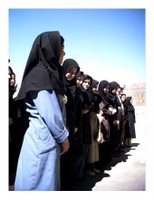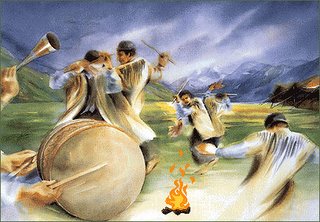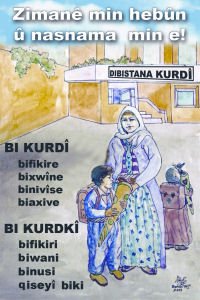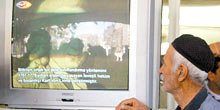معلوم أن العالم قد دخل في مرحلة جديدة من تاريخه الحديث منذ الهجمة الإرهابية الانتحارية على نيويورك وواشنطن في 11/9/2001، بحيث دخل العالم في صراع جديد بين قوى "الديموقراطية " وقوى "الإرهاب"، مما أفسح المجال أمام الحكومة التركية لكي تٌظهر نفسها وكأنها الجندي المتقدم في ساحة هذه الحرب الجديدة ضد الإرهاب، وذلك على الرغم من أن تركيا نفسها قد تحولت منذ تسعينات القرن الماضي إلى ما يٌسمى ب"الدولة الواطئة" المحكومة من قبل الجنرالات وقادة الباراميليتاريا الخفية منها والعلنية. وهاهي الأن "تنبه" العالم ظلماً وعدواناً إلى خطورة كل ماهو كوردي، حتى ولو كان هذا "الخطر" قناة تلفزيونية مثل قناة روج (ROJ) التي جريمتها الكبرى هي أنها قناة للكرد ولمن يعيش معهم في وطنهم، من أقليات قومية ودينية...
إن أي متتبع لبرامج هذه القناة التي يمكن للجميع متابعتها في الشرق الأوسط وأوروبا وبلدان كثيرة أخرى، يرى تنوعها الثقافي واللغوي والبرامجي.. والقائمون على هذه القناة يمكن لهم الاثبات بأنها أقامت مئات البرامج الحوارية لأطراف وأشخاص ذوي أفكار متباينة ومواقف مختلفة من القضايا السياسية الكوردية والشرق أوسطية والعالمية، وهناك سلسلة طويلة من البرامج الثقافية والفنية وبلغات عديدة، كما أنها قناة تمنح المجال الكبير للمرأة لتعبر عن رأيها في الحياة والسياسة والأدب والفن... إنها قناة ملتزمة بالإنسان ومشاكله، بكوردستان وتطلعاتها، بالأقليات وحقوقها الدينية والقومية، وبالحوار بين الكورد وغيرهم.... فأي إرهاب هذا الذي تزعمه الحكومة التركية وتحاول اقناع العالم به والحال هذه؟...
نحن كلنا مقتنعون بأن حرية الإعلام والنشر وابداء الرأي والرأي المخالف أساس ثابت للحرية والديموقراطية وحقوق الإنسان في كل مكان، وأن للكوردي الحق في إيصال صوته ومشاكل شعبه إلى العالم كغيره من البشر، وأن الحضارة الغربية التي قامت على الديموقراطية والحرية لم تكن لتصبح قوية بهذا الشكل الحالي دون حرية إعلام، ودون أن تحمي حكوماتها هذه الحرية بقوة وفي إطر قوانين تحددها وتحميها.
فإذا كنت مقتنعا بأنه لا يمكن استثناء أحد من التنعم بالحرية والديموقراطية وحقوق الإنسان، وقبل كل شيء بحق النشر والإعلام وابداء الرأي في عالمنا هذا، فنأمل منك أن تضم صوتك إلى الأصوات المطالبة بفضح سياسة الدولة التركية القائمة على ممارسات عنصرية تجاه القوميات الأخرى، ومحاولاتها الهادفة إلى عزل الكورد وكبت صوتهم ومنع إيصاله إلى الرأي العام العالمي، من خلال هجومها الساحق وغير العادل على الأقنية التلفزيونية الكوردية ، وبخاصة (قناة روج تفي) ، بعد أن فشلت في حجبها على الشارع الكوردي.
يمكنكم اضافة اسمائكم عبر البريد الالكتروني: rojava@rojava.net
الموقعون:
1- Qado Şêrîn /Nivîskar - Holland
2- Inayat diko/Hunermend-Germany
3- Nezîr Palo /Helbestvan -Germany
4- Abdulbaqî Huseynî /Nivîskar Norwegen-
5- Merwan Alî /Nivîskar-Germany
6- Awaz Kalo
7- Can Kurd /Nivîskar - Germany
8- Ahmad Eimo /Germany
9- Selîm Biçûk /Nivîskar - Germany
10- Tariq Hemo /Rojnamevan-Germany
11- Muhsin Cewamîr /Nivîskar - Swed
12- Dilyar Dêrikî /Helbestvan - Holland
13- Ebrahim Ebrahim /Nivîskar
14- Kemal Necim /Helbestvan
15- Seîd Mistefa /Economist-Australia
16- Ciwna Mistefa /Marketing-Australia
17- Mehfûza Xelef /Australia
18- Barzan Şêxmûs
19- Adnan Şêxmûs
20- Xebatkarên www.amude.info
21- Sebri Silevani /Nivîskar
22- Helîm Yûsiv /Nivîskar
23- Abdulsetar Nûr Elî /Nivîskar - Swed
24- Orhan Beyar /Nivîskar - Hisiçe
25- Wijdan Dêrikî /Rojnamevan - London
26- Reşad Şeref /Çîroknivîs - Şam
27- Omer Koçerî /Nivîskar - Şam
28- Selah Welo /Malpera Derbesiye - Swêsra
29- Adil Xelef /Şêwekar - Şam
30- GURO /Şêwekar - Şam
31- Abdê Caco /Helestvan - Şam
32- Heval Yûsiv Nivîskar/wergervan - Şam
33- Nezîr Cezmatî Nivîskar/Lêkolînvan - Şam
34- Desteya şevên çandî yên kurdî /Şam
35- Kovara Leylan /Sûriya
36- Hoşeng Osê /Nivîskar/Helbestvan - Şam
37- Nezîr Melle /Helbestvan - Germany
38- Azer Osê/Helbestvan - Germany
39- Reşîd Hesso/Şêwekar - Germany
40- Mesûd Iko/Rojnamevan
41- Abdulkadir Musa /Helbestvan - Germany
42- Mustefa Ismayîl /Helbestvan/nivîskar
43- Faraj Baslo/Helbestvan - LA.CA.USA
44- IDRIS OMAR/Germany
45- Ejder Şêxo/Rojnamevan
46- Husên M. Hebeş/Helbestvan - Germany
47- Aref Gabeau/Malpera Efrin. net
48- Imer Kalo/Holland
49- Selah Ehme
50- Bawermend Kurdaxî /Xwendekar - Rûsiya
51- Nezir Silo/Niviskar
52- Baban Seqizî
53- Ferhad Ehmê/Rojnamevan - Germany
54- Ibrahîm Elyûsiv /Nivîskar
55- Ehmed Heyder /Nivîskar
56- Îvan Muhemed
57- Mesûd Dîwanî/Nivîskar
58- Siyamend Dîwanî
59- Komela Şêxê Şehîd Maşûq Elxeznewî
60- Komela Sêşema Elqafî الثلاثاء القافي
61- Desteya Kovara Elmewasim
62- Maf – Encumana Mafê Mirov Kurd Li Sûrî
63- Rêxistina Ray ya mafê mirovê sûrî
64- Şiyar Şêx Seîd/Rojnamevan
65- Siyamend Mîrzo/Nivîskar
66- Necla Ibrahîm
67- Komela Şehîd Ferhad muhemed Sebrî
68- HISEN QADIRKO
69- Miço Kendes /Dengbêj - Swîsera
70- Desteya Malpera Maf
71- Desteya Malpera Keskesor
72- Ebdulrehman Efîf/Wergêr- Helbestvan
73- Selîm Hesen /Lubnan-Xwendevanê zankoyê
74- Dr Khaled ISSA /Paris - Avocat
75- Dr Azad CHAHIN/Paris - Médecin
76- Satar BABAKHAN/Paris - Juriste
77- Hanin CHAHIN/Paris - Ingénieur
78- Judith Wolf/Kurdolog - Germany
79- Ehmed Abdulkarîm /Xwendekar - Ferensa
80- Mihmûd Elî Silo/Dr.pedyator ji Fernsayê
81- Binyad Ceziri/Rojnemevan - Viena
82- Alan Hesaf/Şam
83- Şîrwan Ibrahîm/Kocka 12 Adarê - Holland
84- Amşa Ibrahîm/Mamoste - Holland
85- Heyder Omer/Nivîskar - Germany
86- Dr. Şaban Mizori/Sweden
87- Newaf Xelîl/Rojnamevan
88- Meşal Temo/Pêvdanê şepêla pêşeroja kurdî
89- Ahmad Şêxo/Xebatkar
90- Hoşeng Broka/Helbestvan
91- Hoşin Omar/Belçika
92- Zuhêr Kazim Ebûd/Nivîskar/Dadger - Swed
93- Cano/Şêwekar - Germany
93- Catherine Bachellerie/Wergervan - Swîsera
94- Hesen Mele/Koçka 12 Adarê
95- Hesen Resûl/siwîsra
96- Bêwar Bêkes/Holland
97- Cano şakir/Hunermend
98- Dîlan Zêbo/Helbestvan Germany
99- Cemal Milli
100-Salar Ibrahim/Malpera Qamislo.info
101- Salua Hasan
102- Zubêr Salih/Hunermend-Germany
103- Desteya malpera kurdroj.com
104- Haytham Manna Paris
105- Moncef Marzouki Tunisia
106- Violette Daguerre Paris
107- Philipe Wesporde Lyon
108- Sylvie Deplus Paris
